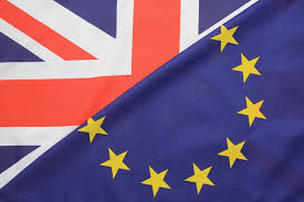
The implications of a 'Leave' vote are quite a different proposition. Leaving the Union is easy enough to understand because it means we will cease to be a member of the EU. But what then? The actual ending of EU membership can be up to 2 years after the vote. During which time the UK will need to negotiate its departure. Only the rabid nationalists know that leaving the EU does not mean we cease to have anything to do with the EU. Everyone knows that we will need to negotiate some sort of trade agreement with the EU (unless we are seriously going to stop 40% of our economy's trade overnight). 'Leave' cannot mean doing no more business with anyone in the EU. Which begs the question which the ballot paper does not ask. What are those voting for leave prepared to concede in return for access to the EU's market after a Brexit? A payment to the EU in return for access to its free trade area? If so, how much? Compliance with EU product and employment regulations? If so, which ones and what about new ones which the EU may agree amongst its members after we leave? Compliance with the EU rules on jurisdiction in civil or family disputes? If not, how will our businesses and families predict how disputes may be resolved? Free movement of people and labour?
Assuming that we will want to reach a trade agreement with the EU after a Brexit which is not substantially more disadvantageous for Britain than the existing benefits we have by being part of the common market we are going to have to accept that the EU will expect concessions to be made. We can expect the concessions the EU will demand to be pretty onerous. After all, none of the remaining EU members are going to want to make it look like leaving the EU is an easy option. The UK can hardly expect to be treated as well as any member, or even as well as another country which has never been a member. It seems likely to me that the conditions for having a free trade agreement with the EU are likely to be pretty similar to the terms we have to abide by as members of the EU. Which means that we either accept that we are not going to have a free trade agreement with the EU (which will be little short of a national catastrophy) or that we are going to have such an agreement but on terms very similar to those of our existing membership. Why would we choose to be bound by rules the same as those we are at the moment, but without any say in the making of them?
The ballot paper does not ask these questions. Neither does it provide the politicians who need to deal with a potential Brexit and the need to negotiate with the EU any guidance as to what sort of relationship the UK wants to have with the EU in the future, or on what terms. Those are, in many respects, bigger questions than the simple 'Leave' or 'Remain' question.
There is a reason we do not use referendums very often. It is because life and reality is often a lot more complicated than any simple question on a ballot paper can answer.
 RSS Feed
RSS Feed